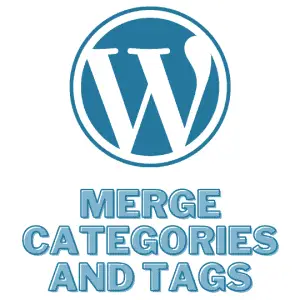Within the realm of SEO and blogging, there exists a buzzword that both intrigues and confounds many – Domain Authority (DA). Created by Moz and often held as a revered standard by countless websites, DA is often misinterpreted as an official Google metric for website ranking.
However, this understanding is far from the truth. The aim of this discourse is to demystify domain authority, delve into the genuine factors that Google considers for website ranking, and emphasize the necessity of redirecting your attention to the essential elements of successful blogging.
Table of Contents
Understanding Domain Authority
Understanding Domain Authority
Domain Authority (DA) is a score developed by Moz that predicts how a website will rank on search engine results pages (SERPs). The score ranges from one to 100, with higher scores corresponding to a greater ability to rank.
It’s calculated by evaluating linking root domains, a number of total links, MozRank, MozTrust, and more. It’s a comparative tool, meaning its value is primarily used to compare the ranking strength of one site to another, rather than being a standalone indicator of a site’s SEO performance.
The Misconception about Domain Authority and Google
Many bloggers and website owners believe that Google uses Domain Authority in its algorithm to determine a website’s ranking on the SERP. However, this is a common misperception. Google has categorically stated that it does not use DA in its ranking algorithm.
Google’s John Mueller confirmed this in a tweet, stating, “In general, I’d avoid focussing [sic] on “domain authority.” We don’t use it, and focusing on it can lead to weird & unnatural situations.”
And in another, he said: “We don’t use domain authority at all in our algorithms.”
Why is Domain Authority Considered a Made-Up Metric?
The explicit statement from Google that Moz’s Domain Authority isn’t a direct ranking factor has led to discussions referring to DA as a “made up” metric.
Rather, it is an estimate, a prediction derived from a proprietary algorithm developed by Moz and based on observed trends across the internet. It is important to remember that while Moz develops credible SEO tools, their understanding of Google’s algorithm is deduced through correlation studies and is not exact.
Also read: 8 Dangerous Blogging Mistakes That Beginners Must Avoid [Motivation]
Why New Bloggers Shouldn’t Worry about DA
New bloggers often get hooked on improving their DA, under the assumption that it will improve their Google rankings. However, as discussed, Google does not use Domain Authority in its algorithms. Hence, rather than investing excessive effort into improving Domain Authority, new bloggers should focus on other proven elements of good SEO practice.
These include creating high-quality content, driving user engagement, and building reputable links, among others. While a higher DA score might indicate a website has many factors Google likes—such as good link profiles—it is more useful as a comparative rather than absolute tool. Keeping a track of your DA score can help you understand where you stand against your competitors, but it should not be viewed as a silver bullet for achieving high SERP rankings.
Unmasking the Myths of Domain Authority
Despite its widespread use, Domain Authority (DA) isn’t a metric that Google utilizes in defining search rankings. As such, it shouldn’t be the primary focus of SEO strategies. It merely serves as a barometer for gauging the potential ranking power of entire domains or websites. Instead, bloggers ought to concentrate on generating compelling content, enhancing on-page SEO, and establishing top-notch backlinks to augment organic traffic to their sites. Although DA mirrors several SEO factors, it’s not the root cause. This information is particularly important for new bloggers who are striving to create successful blogs.

Deciphering the Real Google Ranking Factors
Deciphering Google’s Ranking Factors
While discussing the factors influencing a website’s ranking, it’s crucial to realise that there are numerous elements at play behind the scenes that define how a website ranks on Google. These factors include, but are not limited to, the relevance and quality of the content in relation to the search query and the user-friendliness of the website. Consequently, these factors constitute the lifeline of Search Engine Optimization (SEO).
Decoding Domain Authority
“Domain Authority” or DA is a metric developed by Moz, an SEO software company. It’s a score between 1 to 100 that predicts how well a website will perform on search engine result pages (SERPs), and it’s based on various factors like linking root domains and the number of total links. However, it’s important to understand that DA is not an official Google metric.
Google’s Take on Domain Authority
Google has frequently clarified that it doesn’t use DA for ranking websites. Google’s algorithms are far more complex, analyzing hundreds of factors to rank pages, rather than relying on a single composite score like DA. While Google does consider the reputation or “authority” of a website, it’s calculated in a much more complex way.
Should Bloggers Worry About DA?
For new bloggers, focusing on DA may distract from their main goal – writing quality content. The DA score, at best, is just an indication of how your site may rank in SERPs and not a definitive measure of your website’s true authority or legitimacy.
Moreover, improving your DA could be a long-term endeavor and might not yield immediate results. Instead, investing effort into producing high-quality content, improving site load speed, enriching user experience, and other proven SEO strategies are more likely to yield tangible benefits.
Relevance over DA
Another reason why bloggers shouldn’t worry excessively about DA is that relevance now plays a more significant role in ranking. Google prioritizes serving the most relevant content to its users above anything else. Thus, even if a site with high DA has less relevant content, a lower DA site with highly relevant content could rank higher.
Focus on Real SEO Metrics
While Domain Authority (DA) may appear important, it is actually a fabricated statistic that Google does not officially use for ranking websites. Therefore, bloggers, particularly those just commencing their blogging journey, could benefit more from dedicating their energy towards improving their site’s content quality, relevance to search queries, and overall user experience. These are the actual factors that Google deems vital, and which should occupy a blogger’s primary focus and concern.

The Misconception of Domain Authority
Understanding Domain Authority (DA)
Domain Authority is a metric contrived by Moz, a prominent company in the SEO software industry. This metric purports to forecast a website’s potential performance on search engine results pages (SERPs). DA scores can vary from one to a hundred, with higher scores supposedly denoting a stronger ability to rank. This score is derived from an analysis of multiple factors, such as the total link count, the number of root domains, among others.
Misunderstanding the Role of Domain Authority
One of the prevalent misconceptions in the SEO world is the belief that Google uses Domain Authority in its ranking algorithm. This belief often leads novice bloggers to stress over improving their website’s DA score. However, it’s crucial to understand that DA is a proprietary metric and not recognized or used by Google.
Google has time and again clarified that it does not use DA in its ranking algorithm. Moreover, Google uses over 200 ranking factors in its algorithm, but Domain Authority is not one of them. It suggests marketers and website owners should focus on executing well-rounded SEO strategies.
Why is Domain Authority a Made-up Metric?
DA is termed a ‘made-up’ metric because it’s not a Google-sanctioned, official metric in evaluating a website’s SEO strength. It is a prediction tool designed by Moz that correlates with search engine rankings but doesn’t have a direct impact on your SERPs placement. While it can provide a general idea of your website’s overall SEO potency, the actual ranking depends on Google’s complex and dynamic algorithm.
Risks in Solely Relying on Domain Authority
Fixating on Domain Authority can be a misguided approach to SEO for several reasons. First, as mentioned, Google doesn’t acknowledge DA; thus, improvements in DA won’t necessarily translate into better Google rankings.
Secondly, a high DA score doesn’t guarantee high traffic or engagement. SEO is about more than just ranking—it’s about attracting, engaging, and converting the right audience.
Lastbut not least, the DA metric can sometimes be manipulated, making it unreliable. Like with other SEO metrics, websites can artificially inflate their DA score through tactics like purchasing backlinks. Therefore, it’s advisable to use DA alongside other tools and metrics, rather than in isolation.
Recognizing The Role of Domain Authority for New Bloggers
As new bloggers venture into the digital space, there’s often an early, somewhat misplaced, emphasis placed on amplifying their Domain Authority (DA). However, it’s critical to understand that establishing a superior website is a journey that entails dedication and time. A substantial part of this journey should be channelized towards crafting engaging content, refining the site’s keyword optimization, solidifying its user interface, and curating backlinks of high quality. These are the criteria Google has traditionally used for ranking and are thus more likely to ensure long-term SEO prosperity.
While developing knowledge about Domain Authority can add value, it should not be the centerpiece of their SEO strategy, particularly for novice bloggers. Consistency, quality, and patience are the primary drivers towards meaningful results. DA is merely one aspect of the expansive SEO landscape; it doesn’t encapsulate the whole picture.

Focusing on What Truly Matters in Blogging
Understanding the True Nature of Domain Authority
The term Domain Authority, typically abbreviated as DA, is beginning to buzz around the blogging community. It’s commonly understood as an indicator of a website’s performance and positioning on search engine results. Nonetheless, it’s important to clarify that Domain Authority is essentially a proprietary metric conceived by Moz, a leading SEO software provider. This tool does not figure in the official ranking criteria of Google or any other search engine. DA is essentially a predictive tool that proposes an estimation of a website’s potential ranking on Search Engine Result Pages (SERPs), based on a blend of factors.
The Parameters of Domain Authority
Moz’s DA algorithm primarily evaluates the number of total links, linking root domains and MozRank, among other things. However, despite these being robust elements to consider in optimizing a website, the DA score does not affect Google’s ranking algorithms. This is because Google uses a multitude of factors to rank websites, such as site structure, relevance, loading speed, mobile-friendliness, and quality content, most of which are not considered in the DA metric.
Why New Bloggers Shouldn’t Rely on Domain Authority
It isn’t uncommon for new bloggers to become anxious and indulge in ‘DA-chasing’. However, it’s essential to realize that DA is a comparative and relative metric. It’s not an absolute figure that guarantees higher rankings. A high DA score doesn’t immune a website from poor search rankings if it lacks in providing relevant, valuable, and quality content to its users.
The Significance of Content Quality in Blogging
For new bloggers, it’s more beneficial to invest their time, effort, and resources into creating unique, engaging, and high-quality content. Focusing on the quality of your content matters because Google’s algorithms prioritize delivering high-quality and relevant search results to users. Authentic, quality content has proven time and again to be a vital factor in achieving higher organic search rankings.
Engagement over Metrics
In addition to quality, the ability to engage your readership personally should not be overlooked. Connectivity with the audience via comments, shares, and likes plays a crucial role in building a successful online presence. Developing a loyal readership can be more valuable than a high DA score.
The Power of SEO
Search Engine Optimisation (SEO) is more than a numbers game. While metrics like DA can provide a useful benchmark, they are not the be-all and end-all. True SEO success lies in a balanced approach that considers both technical and audience-centric aspects. From using the right keywords and maintaining an intuitive site structure, to building quality backlinks and delivering valuable content — focusing on all these areas will inherently improve your site’s visibility more effectively than solely focusing on Domain Authority.
In conclusion
while DA could be a helpful tool to track SEO efforts and compare site strengths, it should not be the primary focus, especially for new bloggers. Concentrate instead on the elements that genuinely matter: creating compelling, valuable content, and building a connection with your audience. This approach will not only improve your site’s appeal to search engines but will also build a loyal, engaged audience.

Bloggers, especially those who are new to this path, should remember that a successful blog doesn’t thrive on obscure, unverified metrics such as DA but primarily on the quality of its content and the value it brings to its audience.
Blogging, at its best, is about connecting, engaging, and sharing knowledge with your readership. Therefore, instead of getting ensnared in the ambiguity of domain authority, focus on creating high-quality, relevant, audience-centric content. Remember, at the heart of your blog’s success lies your creativity, dedication, and your reader’s gratification – and no artificial metric can overshadow these human, genuine elements.






